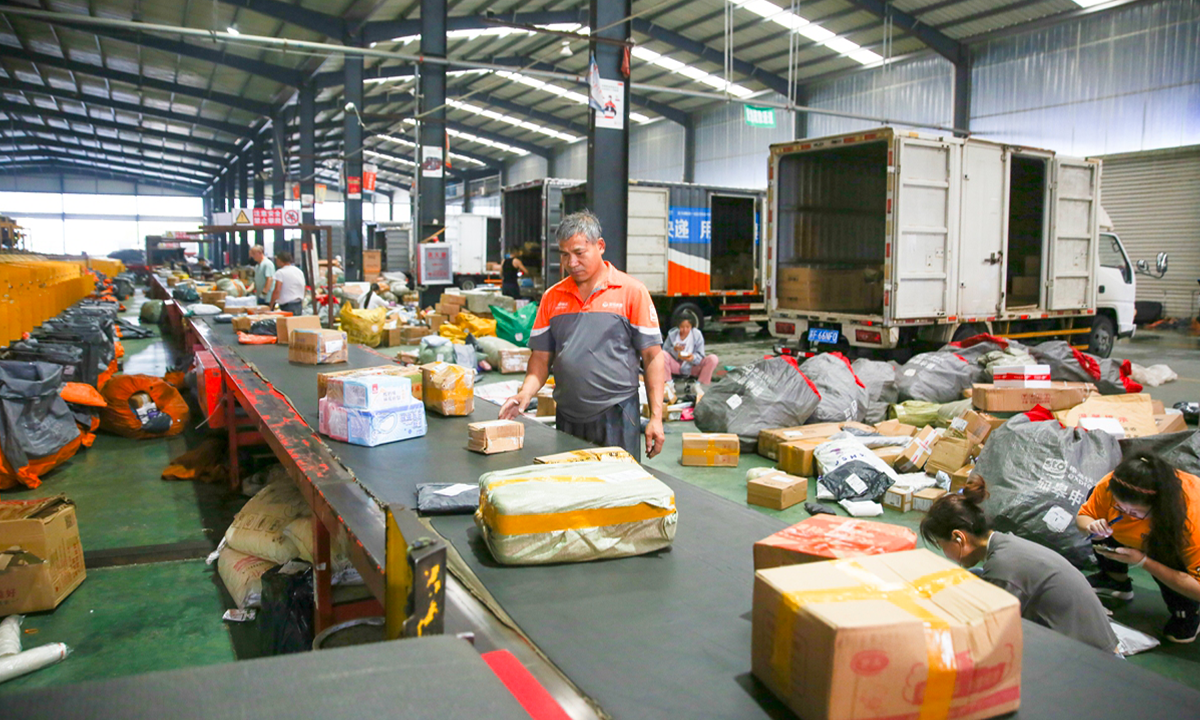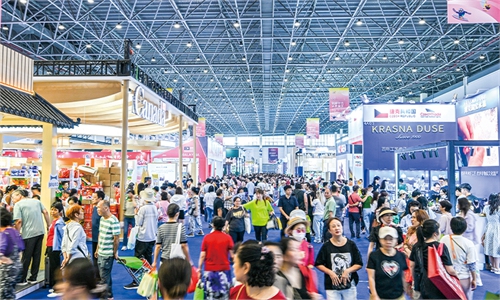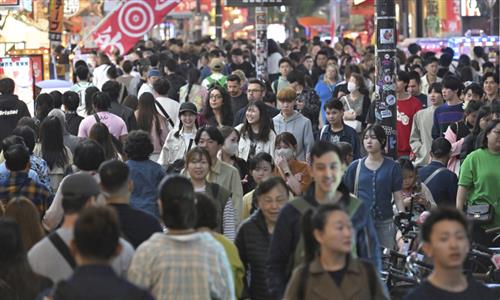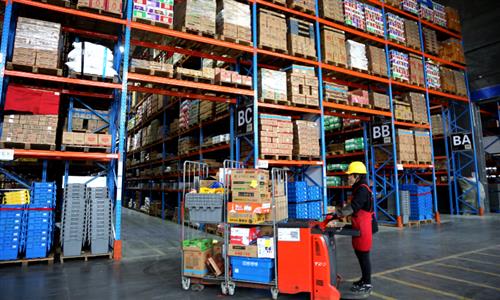
Staff members are busy packing and sorting parcels for the "618" shopping festival on June 18, 2023, at a logistics park in Nantong, East China's Jiangsu Province. Photo: VCG
Major local and international brands such as Apple have reported surging sales during this year's 618 mid-year promotion gala in China, as consumer spending potential continues to be unleashed amid a stable recovery in the world's second-largest economy.
On Tuesday, Apple's iPhone 15 returned to the top of a smartphone sales list and became a trending topic on China's social media Sina Weibo. According to media reports, the iPhone 15 series had robust sales during the 618 shopping spree after sizable price cuts, with the iPhone 15 Pro topping the list, and all products in the iPhone 15 series ranking in the top three.
On Chinese e-commerce platforms Tmall and JD.com, the company offered discounts of more than 20 percent on its latest iPhones.
The 618 shopping spree provides an important window on new consumption trends, and it's also a barometer of China's consumer market. On the back of a series of targeted policies to boost effective domestic demand, sales of home appliances surged, Lu Zhenwang, founder of Shanghai Wanqing Commerce Consulting, told the Global Times on Tuesday.
According to data JD.com sent to the Global Times, brands including Apple, Midea, Haier and Xiaomi saw their sales exceed 100 million yuan ($13.78 million) immediately after the platform kicked off the promotion event at 8 pm on May 31.
Surging sales of imported items such as cosmetics, healthcare products and sports goods were another highlight during this year's 618 shopping spree, Lu said, noting that this reflected a new trend in consumer spending in China, while underscoring the country's firm commitment to continuously expanding imports.
In April, the Ministry of Commerce and 13 other government departments rolled out specific measures to facilitate and encourage trade-ins of consumer goods. The move has achieved positive initial results over the past few months, raising market confidence that a successful revival of consumption will offer stronger impetus to the economy.
In the first five months of the year, retail sales grew by 4.1 percent to 19.52 trillion yuan. The rapid development of livestreaming has driven the expansion of online consumption scenarios, with online retail sales rising by 12.4 percent to 5.77 trillion yuan over the period, according to data released by the National Bureau of Statistics on Monday.
This year, Chinese e-commerce platforms and brands competed fiercely, including offering discounts and consumption vouchers. For example, one Chinese e-commerce platform offered subsidies on almost all categories of products including food, cosmetics, clothes and home appliances, and consumers could get vouchers worth as much as 720 yuan per day.
Compared with previous 618 festivals, major e-commerce platforms in China fought to offer the lowest prices to attract consumers, Lu said. With the entry of newcomers such as some livestream platforms, competition in the e-commerce sector is healthier than ever, he said.
"The 618 shopping festival this year was an indication of continued growth for China's e-commerce industry, as positive pre-sales data from Chinese e-commerce giants suggested that consumer spending continues to rise," Tristan Chiappini, vice-president for the Asia-Pacific of global payments platform PPRO, told the Global Times.
The outlook for consumer growth remains positive, Chiappini said, projecting that the value of Chinese e-commerce purchases is on track to rise exponentially to almost $5 trillion by 2027.



